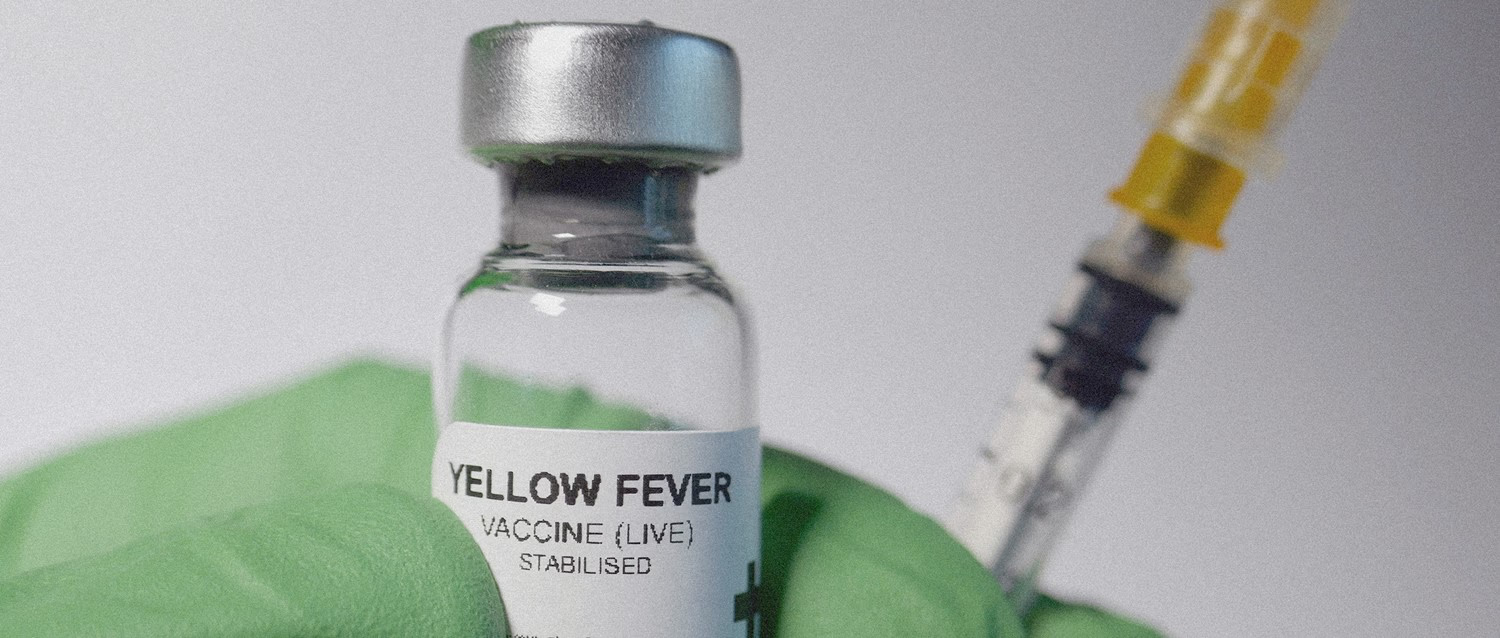
What side effects are associated with the yellow fever vaccine?
Peer reviewed by Dr Sarah Jarvis MBE, FRCGPLast updated by Léa SurugueLast updated 16 Jul 2019
Yellow fever is endemic to many countries in Latin America and Africa and can often be fatal. Vaccination is currently the best protection against this deadly disease - but what are the risks?
In this article:
Before moving to Bolivia, freelance journalist Amy Booth had to get the yellow fever jab. She would be travelling a lot for work and knew this would protect her against the deadly infectious disease. However, getting the vaccine worried her a bit.
"I was a bit nervous about getting the vaccination. I had colleagues who'd had it and said that, as it was a live vaccine, the side effects could be quite strong. One even said that he had feverish side effects that were like being ill in their own right, so he couldn't imagine what the actual fever was like," Booth says.
Despite her concerns, everything went smoothly for her, and she did not experience any side effects. Her vaccination certificate now follows her everywhere when she travels, and like many people who have experienced yellow fever vaccination, she can do so with additional peace of mind.
Continue reading below
Fighting yellow fever
Yellow fever is endemic to 47 countries in Africa and 13 countries in Latin America. It is characterised by a high fever, headache and muscle pains, but these symptoms typically disappear after a few days. However, in a number of cases, these progress to a more severe form of the disease with haemorrhagic syndrome, kidney problems, vomiting and jaundice (which is where the name 'yellow' comes from).
The virus at the root of the problem is transmitted to humans through the bites of Aedes and Haemagogus mosquitoes. Outbreaks in Angola in 2015 and Brazil in 2016, as well as cases in French Guiana in 2017, still mean that yellow fever is an important issue, high on the global health agenda. 200,000 cases are reported each year - 30,000 of which are fatal.
Vaccination is the only real solution to fight the disease. "Vaccination is the only real tool that works, especially when you consider that the mosquito bites during the day. So unlike malaria where there are preventative measures you can take because the mosquito bites at night and you can sleep under a net, here there's nothing of the sort you can really do," says Dr Paul-Henri Consigny, head of the medical centre of Institut Pasteur, the institution which produced the first yellow vaccine in 1932.
The yellow fever vaccine offers high protection that is sustained in the long term. Getting only one shot of the vaccine in your lifetime is usually enough for most people, and it is what doctors recommend in most cases. Your pharmacist, GP or practice nurse can advise if you're in the high-risk group of people for whom boosters may be recommended. For people who cannot get vaccinated, the only other available measures revolve around bite prevention, by using mosquito repellent and wearing clothes that cover the body.
Patient picks for Travel vaccinations
Who should get vaccinated?
Vaccination is advised for everyone living in or going into an area where yellow fever is found and, of course, for people going to a country that requires travellers to enter with a certificate proving they have been vaccinated against yellow fever.
The vaccine should not be given to infants under 6 months of age, to those with a history of severe allergy to eggs or to any of the other components within the vaccine, and to people whose immune system has been compromised by a medical condition or disease process, medication, or inherited condition. It should be avoided where possible for pregnant or breastfeeding women.
"People over the age of 60 years are at a greater risk of adverse reactions to the yellow fever vaccine. The risk of severe, potentially life-threatening reactions must be balanced with the risk of being infected with yellow fever when making a decision whether or not to vaccinate," says Dr Nicky Longley, consultant in Travel Medicine and Infectious Diseases at the Hospital for Tropical Diseases, London.
Continue reading below
What are the risks of complications?
After vaccination, between 10% and 30% of people will experience mild and short-lived side effects such as muscle aches, headache, low-grade fever and a sore arm. These are not harmful and will disappear on their own with no long-lasting effects.
However, there are three very rare, but potentially life-threatening, adverse reactions that may occur with the vaccine. The most severe is yellow fever visceral disease, which occurs when the vaccination itself produces an infection like yellow fever. The risk of this happening is very low: about 1 in 250,000 doses if you are under 60. This risk increases to to around 1 in 50,000 doses once you are over 60.
"There are some circumstances when you have to think hard about whether you should get the vaccine, really looking at the pros and cons with your doctor. It is important to weigh up the risk of being infected with the disease against the risk of severe side effects. This will depend on your age, your underlying medical conditions, any medication that you are taking, where you are going within a country and outbreaks that are occurring at the time of travel," says Longley.
Yellow fever neurological disease occurs between 0.3 and 0.8 in 100,000 cases in the USA. It covers a range of neurological problems such as weakness, encephalitis and meningitis. Those at higher risk are, again, people over 60 as well as young babies. Finally, severe allergic reactions to the vaccine are possible.
Your vaccination checklist
Research your destination
Is an epidemic currently ongoing in the area? How many cases are reported every year? Which areas of the country are particularly problematic?
Remember that even if yellow fever is not a major risk in the area you're visiting, some countries require all visitors coming from an at risk country to have a yellow fever vaccination certificate. This may include transiting through at-risk countries. Do you need a certificate to travel to your final destination or anywhere in between?
Plan in advance
Getting the vaccine at least 10 days before departure is recommended, to make sure it has time to take effect.
Have a transparent discussion with your health professional
It is always important to go and ask about any doubts and concerns you may have. As with every medical intervention, knowing the pros and the cons, and understanding the possible side effects, are key.
"It’s always about shared decision-making with the health professional, balancing the risk of disease and the risk of the intervention," Longley says.
Article History
The information on this page is written and peer reviewed by qualified clinicians.
16 Jul 2019 | Latest version

Feeling unwell?
Assess your symptoms online for free

